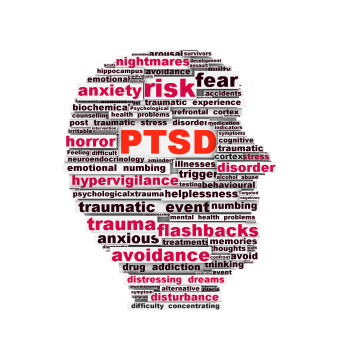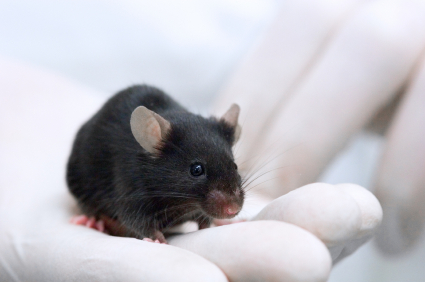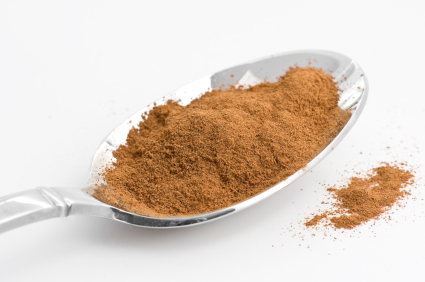Inflammation and Anti-Inflammatories in Depression
Depression is often associated with increases in markers of inflammation in blood, which include IL-1, IL-6, TNF-alpha, and CRP. Risk factors for increased inflammation include stress, obesity, a diet high in omega-6 fatty acids, sedentary lifestyle, social isolation, low socio-economic status, smoking, and being female. Treatments such as lithium, other mood stabilizers, and antidepressants can all have anti-inflammatory effects.
At the International Congress of Neuropsychopharmacology in 2012, researcher Michael Berk reviewed data on inflammation in depression. Berk shared prospective data that in the general population, people whose levels of CRP fall within the highest third have the highest risk for a new onset of depression over the next 9 years, while those with CRP values in the lowest third (indicating low inflammation) had the least likelihood of becoming depressed.
Drugs with more direct anti-inflammatory properties are beginning to be studied in unipolar depression with some success. In a trial by Abbasi et al. published in the Journal of Affective Disorders in 2012, the anti-inflammatory COX-2 inhibitor celecoxib (Celebrex) when added to the selective serotonin reuptake inhibit (SSRI) sertraline (Zoloft) had better antidepressant effects than the addition of placebo.
Sepaujnia et al. reported in Neuropsychopharmacology in 2012 that an anti-diabetes drug that also has anti-inflammatory properties, pioglitazone (Actos), also beat placebo in depression.
Laan et al. reported in the Journal of Clinical Psychiatry that the same was true of acetylsalicylic acid (ASA or aspirin).
Finally, Berk summarized data that the class of cholesterol-lowering drugs called statins are also able to decrease CRP and improve or prevent depression. Epidemiological data by Pasco et al. published in Psychotherapy and Psychosomatics showed that subjects without depression were less likely to develop a new onset of depression if they were treated with statins compared to those who were not. Stafford et al. reported in the Journal of Clinical Psychiatry in 2010 that patients taking statins had a 79% decreased likelihood of depression at 9 months of follow-up. A third study in Sweden showed that simvastatin, a lipophilic (fat-soluble) drug that can readily enter the brain, decreases the incidence of depression more than some of the non-lipophilic statins.
Moreover, a meta-analysis by O’Neil et al. reported that overall, statins had positive effects on mood.
Editor’s Note: All these data come from studies of unipolar depression, so one must consider how relevant they are to bipolar depression. They may be pertinent, since elevated inflammatory markers have consistently been reported in bipolar depression. However, this cannot be assumed until appropriate studies are performed. (As usual, research in bipolar depression lags far behind that in unipolar depression.)
Preliminary uncontrolled retrospective data from one study did suggest that those treated with lithium plus aspirin did better than those on lithium and no anti-inflammatory.
Thus it may make sense for unipolar and bipolar depressed patients with risk factors for heart disease such as a positive family history of heart disease and elevated cholesterol and triglycerides to discuss with their doctors the possibility of starting statin treatment earlier rather than later. This is because depression itself is a major risk factor for heart disease, so statins might lower risk both by their approved indication of lowering cholesterol and by their apparent ability to help fend off new episodes of depression.
A more complicated issue would be the question of when, if at all, to use primary anti-inflammatory drugs in the adjunctive treatment of unipolar or bipolar depression. Read more
One Doctor’s Protocol for the Treatment of Severe PTSD
 Note: The following article discusses “off-label” treatments for the treatment of PTSD or traumatic brain injury, i.e. those which are not FDA-approved for these purposes. In some of these instances, there is no controlled research to support the use of these drugs in patients with PTSD. Thus the ideas noted here cannot be taken as anything more than anecdotal information from personal experience. Patients and physicians must make their own decisions about any of the strategies reported in this or other issues of BNN.
Note: The following article discusses “off-label” treatments for the treatment of PTSD or traumatic brain injury, i.e. those which are not FDA-approved for these purposes. In some of these instances, there is no controlled research to support the use of these drugs in patients with PTSD. Thus the ideas noted here cannot be taken as anything more than anecdotal information from personal experience. Patients and physicians must make their own decisions about any of the strategies reported in this or other issues of BNN.
At a recent scientific conference, Vaishali P. Bakshi, a renowned Canadian psychopharmacologist, shared a novel treatment strategy he has developed for patients with exceptionally profound degrees of post-traumatic stress disorder (PTSD), which, particularly among military veterans, can be compounded by traumatic brain injury.
Treatment options based on placebo-controlled clinical trials are sometimes insufficient for the treatment of seriously ill patients. FDA-approved treatment for PTSD consists of serotonin-selective antidepressants, while exposure therapies (in which the patient is gradually exposed to more of the stimuli that triggered symptoms) are the recommended psychotherapy, but these methods often leave patients highly disabled.
Bakshi’s typical treatment algorithm goes well beyond these treatment guidelines to find solutions for hard-to-treat patients. He first addresses sleep disturbance, which often occurs in PTSD. He suggests the anticonvulsant levetiracetam (Keppra), starting at doses of 150mg per night and increasing to 500–1000mg as tolerated. This highly sedating anticonvulsant not only improves sleep but may also help cognition, since it is structurally similar to other cognitive enhancers such as piracetam. Levetiracetam also decreases the hippocampal hyperactivity associated with some forms of cognitive dysfunction, as we’ve noted before. In order to further enhance sleep effects, Bakshi adds trazodone at 50–150mg per night as needed.
Instead of selective serotonin reuptake inhibitors (SSRIs), Bakshi recommends the selective serotonin and norepinephrine reuptake inhibitors (SNRIs). Among these, he prefers desvenlafaxine (Pristiq) over venlafaxine, as desvenlafaxine has fewer interactions with other drugs. Theoretically, duloxetine (Cymbalta) is another SNRI that could be used.
Another component of Bakshi’s treatment plan is topiramate (Topamax), which can target many comorbidities of PTSD, including alcohol and substance abuse, particularly stimulant abuse. In addition, topiramate has efficacy in anger attacks, which often accompany PTSD.
In patients with ongoing problems with depression and/or cognition, Bakshi adds bupropion (Wellbutrin). Read more
Prazosin Treats PTSD Nightmares
Patients with PTSD often struggle with nightmares, but a treatment normally used for high blood pressure may also be able to prevent these sometimes horrific dreams. In a study that marks the third replication of this finding, Murray Raskind, a researcher from the University of Seattle, reported that prazosin was significantly better than placebo at selectively blocking nightmares in 77 Iraq war veterans with PTSD in a 15-week trial. (Interestingly, normal dreaming is uninterrupted.)
Editor’s Note: Prazosin is a noradrenergic alpha-1 receptor antagonist. Doses of this drug must be titrated upward slowly over a period of 6 weeks to avoid orthostatic hypotension (a sudden fall in blood pressure that occurs when a person stands up). Maximum doses achieved in this study were 5mg mid-morning and 20mg at night (although 10mg at night is often effective). This treatment, although not FDA-approved, is increasingly being used in veteran populations and other patients with PTSD.
Immune Mechanisms Are Important to the Emergence of Defeat Stress–Induced Depressive Behaviors
At a recent scientific meeting, researcher Georgia E. Hodes presented evidence that in mice, the immune system may play a role in behaviors that resemble human depression. Repeated social defeat stress (when an intruder mouse is threatened by a larger mouse defending its territory) is often used as a model to study human depression. Animals repeatedly exposed to social defeat stress start to exhibit social avoidance and lose interest in sucrose. Hodes et al. determined that interleukin 6 (IL-6), an inflammatory cytokine, or signaling molecule, secreted into the blood was crucial to these behaviors. When the researchers injected mice with antibodies that block the effects of IL-6, or when they irradiated the mice’s peripheral immune system to prevent the formation of IL-6, the depressive behaviors did not emerge following defeat stress.
Editor’s Note: There are increasing data that immunological and inflammatory mechanisms play a role in human affective disorders, and these preliminary data raise the possibility that blocking some immune mechanisms more directly in humans could be a novel therapeutic approach to explore in the future.
In Veterans, PTSD Is Associated With Autoimmune Illnesses
At a recent scientific meeting, Thomas Neylan and colleagues reported that post-traumatic stress disorder (PTSD) may be connected to autoimmune illnesses. In this study, 673,277 veterans of the US military who had served in Iraq and Afghanistan were screened for the development of PTSD. The illness was diagnosed in 31% of the veterans, and those individuals had a higher incidence of autoimmune-related disorders including thyroiditis, rheumatoid arthritis, inflammatory bowel disease, multiple sclerosis, and systemic lupus erythematosus. Neylan’s research group specifically examined those whose disorders developed after the onset of the PTSD, and found that the statistical relationship between their illnesses and PTSD was strong. However, the researchers also found that there was evidence of a similarly strong relationship in the other direction: veterans who were first diagnosed with some of these same autoimmune difficulties also went on to develop PTSD.
Many previous clinical and preclinical studies have linked altered immune and autoimmune mechanisms to severe stressors such as those that are involved in PTSD. This is the first study to unequivocally demonstrate the relationship in an extraordinarily large number of patients.
Editor’s Note: These findings resemble those that suggest that among the general population, childhood adversity is associated with an increased incidence of a variety of medical disorders in adulthood. Similarly, in the Bipolar Collaborative Network in which this editor (Post) is an investigator, we found that a history of childhood adversity in patients with bipolar disorder was associated with an increased incidence of a variety of medical illnesses in adulthood, including some related to immune and autoimmune function.
More research that would measure inflammatory markers in PTSD and mood disorders is needed. It would also be important to ascertain whether treatment of mood disorders and PTSD reduces the risk of autoimmune disorders.
Cinnamon: A Dash is Good, a Spoonful is Dangerous
Cinnamon seasoning is good for you; it sensitizes insulin receptors and helps prevent type 2 diabetes.
Attempting to swallow a whole spoonful—a stunt called the Cinnamon Challenge that was popularized by a viral YouTube video—can be dangerous. It induces violent coughing and a gag reflex that may lead to inhaling the spice into the lungs. Cinnamon is composed of cellulose fibers which do not dissolve or degrade in the lungs, and thus can cause scarring and other long-term lung complications. Details can be found in the May 2013 issue of the journal Pediatrics.






